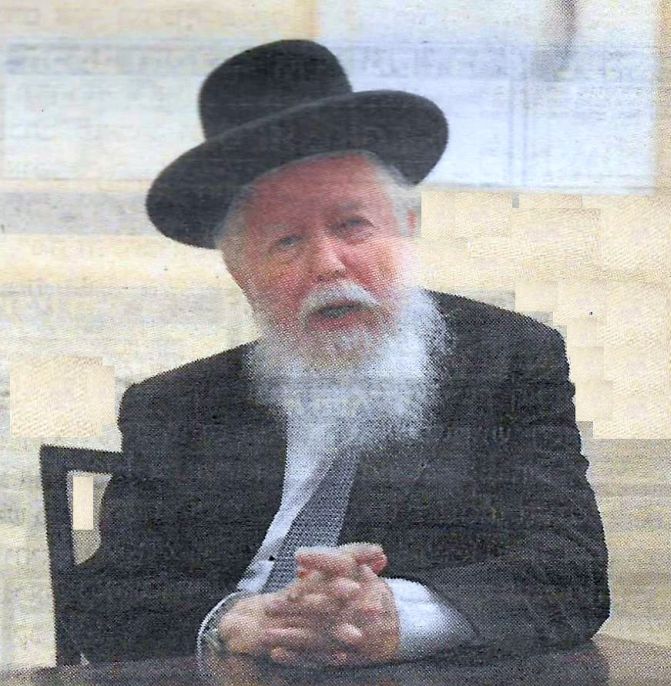
Regarding the selfsame questions which disturb us year after year, HaRav Avraham Zvi Margolis, Rav of Carmiel, asks why we don't see what they saw seventy-eight years ago, when our people truly lamented the Churban. Perhaps, at least, ostensibly during the period of Bein Hametzarim, we mark a check on the laws written in the Shulchan Oruch but feel a lesser concentration of sorrow and pain over the Churban itself. Each year, this question surfaces in deeper intensity.
The truth is that we need not go further back in time. About a decade ago, there was a Jew in Carmiel to whom a grandson was born during the Three Weeks. He approached me and said, "Kvod HaRav, I am very joyful but how can this be if we are now during a mourning period?" I told him that I envied him because in truth, there are not many people who truly feel pain and sorrow now.
This was a 'simple' Jew and we tend to think: What can he already understand about the concept of the exile of the Shechina? And yet, he felt what each of us is supposed to feel — how can we be happy during this period?
I remember how, several years ago, we launched throughout the northern area a project called "The Traveling Beis Medrash." A group of avreichim gathered in one of the shuls of baalebatim in a city or settlement and began studying in partnership with a resident. At the end of the period, there was a summing-up address.
One time, after such a talk, one of the locals approached me and said, "This is the first time that I understand why it is forbidden to study Torah on Tisha B'Av." This was the first time that he enjoyed Torah study. Up till then, he thought that Torah study was an obligation, something you had to do!
He didn't understand why one had to take a break on Tisha B'Av from study, but now that he understood that "the commands of Hashem are straightforward, comforting the heart," he realized why Chazal forbade Torah study on Tisha B'Av. And this, again, from a simple layman.
What, then, is the answer to the question?
HaRav Margolis: The truth is that many answers have been offered to this question, but perhaps the most pertinent one is what Maran HaRav Shteinman proposed: The reason is that, Boruch Hashem, we have it good now.
In the past, Jews in the Diaspora suffered persecution and troubles. The chronicles of Jewish history are unbelievably full of troubles. We need not look further back than a century, when even the lives of Jews who lived in relative quiet, were balanced on a thin rope, a very difficult reality.
The Yaavetz writes in an introduction to his siddur that he was asked why we don't experience miracles like in the past. He said that the greatest miracle of all is the very survival of the Jewish People, a sheep amidst seventy wolves. We have suffered so much pain. When we experience personal pain, it is easier for us to relate to the agony of the Shechina.
I have what to add to the words of HaRav Shteinman: This year, the suffering is very great.
I am returning from Tiveria. Keren Hashevi'is asked me to address the farmers up north who keep Shmittah but so not necessarily keep the rest of the mitzvos. I was asked specifically to speak to farmers from the kibbutzim She'ar Yashuv and Yesud Hamaala who lost sons in this war. One of these families lost an only son who was murdered in Givon a month ago HY"D.
You see the pain of these families and your heart breaks. I came to fortify them and said to myself: What can I say to such families who feel that their life is worthless? How can they keep on going? It is so terrible to feel this from close up. But this daily emotion of pain, so close, can maybe help us to understand the hurt of the Shechina itself.
And what must we do these days?
HaRav Margolis: What is the purpose of the pain of these days? Through our pain we draw closer to HaKodosh Boruch Hu. This is a fact. HaKodosh Boruch Hu wants us to draw closer to Him and to do His will, and if we do not understand this then He brings Rachmono litzlan, troubles and then a person does not think so much and draws closer to HaKodosh Boruch Hu. This awful conjunction of the Bein Hametzarim and these crazy days, brings us closer.
Some people say to me, "The figures are not so high here in the North." But I answer them, that when you see a family that has lost a child, or when a mother is killed from a missile of the Hizbullah, it is awful.
I, as a resident of the North, say that it is awful what has gone on here in the North. 80,000 are evacuated from their homes.
Here in Carmiel, boruch Hashem, in the merit of the two yeshivas here whose Torah protects and saves, we have not had even on siren. We do hear the attacks in Meron and the defense of the Iron Dome system. It is upsetting and arousing, and straightens the crookedness of the heart.
This is what is asked of us in this time. To understand the pain of the Shechina.




